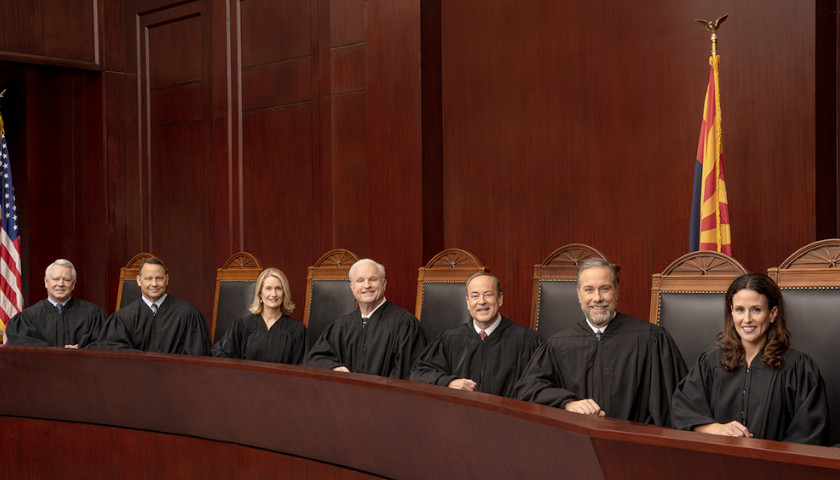by Cole Lauterbach
Even though appellate court judges deal out precedent-setting rulings statewide, those judges are elected only by those in their areas.
With the aid of former Supreme Court Justice Andrew Gould, the Goldwater Institute is representing four Arizonans in Knight, et al. v. Fontes. The case, brought directly to the state Supreme Court, seeks to make appellate court judicial retention elections a statewide matter instead of split into divisions.
“If a judge’s decision will affect the whole state, it shouldn’t matter where in the state he or she lives,” said former Arizona Supreme Court Justice Andrew Gould, who serves as special counsel. “The current system is unfair to the millions of Arizona voters who are bound by the decisions of the judges on the Arizona Court of Appeals, and it raises serious constitutional questions.”
The petition states that the Arizona Constitution requires all votes be “free and equal.” By subjecting voters to precedents set by appellate panels in other divisions, they argue the current system disenfranchises voters on most precedents. This is because the Arizona Supreme Court rules on a small fraction of cases handled in the state’s two divisions.
Goldwater uses a Maricopa County voter as evidence that the system of division-based judicial elections unconstitutionally subjects voters to decisions from appellate panels they don’t get to vote on.
“In practice, this unjust system means that approximately 60 percent of Arizona voters get to vote in retention elections for Court of Appeals judges residing in Maricopa County (the state’s largest county by far), but only about 10 percent of voters can participate in retention elections for Court of Appeals judges residing in the far smaller Pinal, Cochise, Santa Cruz, Greenlee, Graham, or Gila counties,” the institute said in a news release.
The matter of judicial accountability held up Arizona’s statehood for months. In 1911, the would-be 48th state saw its constitution vetoed by President William Howard Taft because it contained language allowing for judicial recalls.Goldwater notes that residents of the new state didn’t wait a full year before they added the provision back into the constitution after Taft approved the state’s admission into the Union.
– – –
Cole Lauterbach is a managing editor for The Center Square covering the western United States. For more than a decade, Cole has produced award-winning content on both radio and television.
Photo “Arizona Supreme Court Justices” by azcourts.gov.








